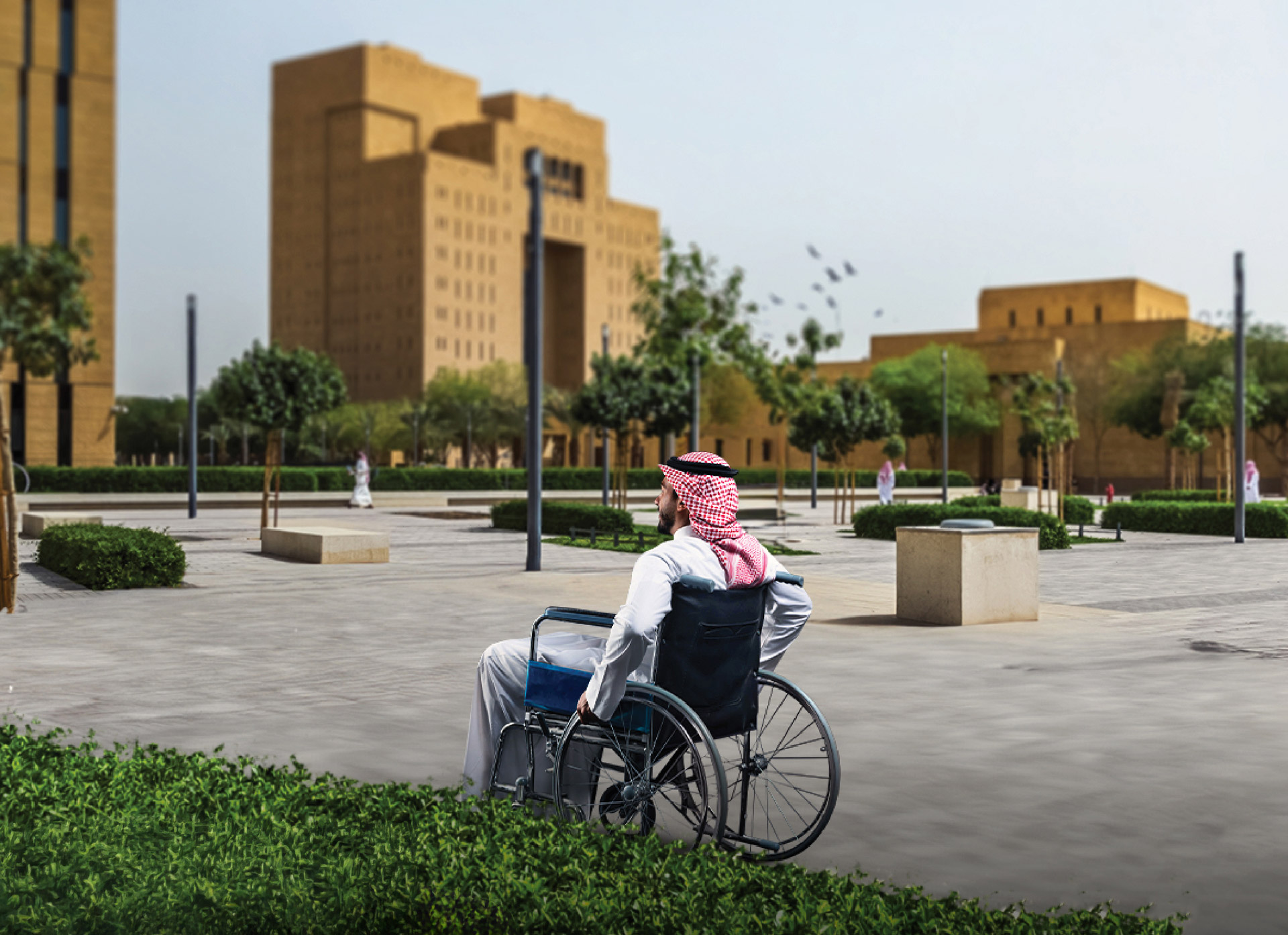
Empowering Persons with Disabilities: A New Vision That Transcends Disability
Under the wise leadership and in harmony with the spirit of Vision 2030, empowering persons with disabilities will be a practical step to embody the slogan of "Enablement" and transform it into a tangible reality in the lives of millions of Saudis with disabilities and their families. This is a historic moment to make charitable associations genuine platforms for social creativity and innovation, where persons with disabilities are the leaders and partners, not merely service recipients.
The Kingdom of Saudi Arabia is steadily progressing towards achieving the goals of Vision 2030, which has given prominent status to empowering and integrating persons with disabilities into society. In this context, the role of the Ministry of Human Resources and Social Development and the National Center for the Development of the Non-Profit Sector, under the leadership of His Excellency the Minister, is highlighted in restructuring the work of charitable and civil associations, especially those serving persons with disabilities. This ensures they become genuine partners in decision-making, not just beneficiaries.
The philosophy underpinning Vision 2030 and the Disability Rights Protection System is the principle of "Nothing About Us Without Us." Article Two of the system emphasizes "enabling persons with disabilities to effectively participate in managing their own affairs." This makes it unacceptable for associations with thousands of members with disabilities to have boards of directors devoid of any real representation for them. The presence of persons with disabilities in decision-making positions within these associations is not an intellectual luxury; it is a necessity to ensure that the services and programs provided meet real needs and are designed with a deep understanding of their experiences.
To achieve a qualitative leap in the work of these associations, His Excellency the Minister, who is also the Chairman of the National Center for the Development of the Non-Profit Sector, can lead the adoption of transformative policies to restructure the internal governance of these institutions through the following pillars:
1. Implementing a Quota System on Boards of Directors: It is both logical and practical for the Ministry to mandate a binding quota for the representation of persons with disabilities on the boards of associations that serve them. Just as "the people of Mecca know its paths best," persons with disabilities have the deepest understanding of their own challenges and aspirations. They must have a audible and influential voice in every decision that affects their lives.
2. Setting Presidential Term Limits: To ensure the renewal of ideas and perspectives, the term of the board chairman should be limited to a maximum of two consecutive terms. A single president remaining for 20 years contradicts the principles of innovation and creativity outlined in Vision 2030 and can hinder the adoption of new ideas and modern approaches to institutional work.
3. Reconsidering Membership Fees: Membership fees for persons with disabilities in their own associations should be symbolic, and it is illogical for them to exceed one thousand Riyals. This step encourages broad participation and removes financial barriers that may prevent them from joining and contributing to the development of their associations.
4. Transparency and Accountability: Enhancing oversight and accountability mechanisms to ensure that association resources are optimally used to achieve the maximum possible impact on the lives of beneficiaries, while providing clear channels for beneficiaries to express their feedback and suggestions.
In reality, the Ministry of Human Resources and Social Development is making significant efforts to empower persons with disabilities, which forms a strong foundation upon which to build the proposed reforms. The Ministry has launched the "Muwaimmah" program, which aims to provide an inclusive and suitable work environment for persons with disabilities in the private sector and incentivize businesses to employ them. It also offers a comprehensive suite of electronic services, such as disability assessment, monthly financial aid, home care services, assistive medical devices, and many other services for persons with disabilities.
The Ministry is also working on developing infrastructure through initiatives like the Universal Access Program of the King Salman Center for Disability Research, which sets standards and guidelines for adapting the built environment and transportation means to facilitate the mobility of persons with disabilities. The Ministry has received international certificates of appreciation for the quality of its services, including those provided to persons with disabilities.
The call to reform the structure of association boards is a continuation of the significant efforts the Kingdom is making in the field of disability empowerment. His Excellency the Minister, who has been praised by numerous local and international reports for his role in leading this development process, has a historic opportunity to leave a lasting legacy that redefines the concept of charitable work for persons with disabilities—shifting it from a model of care to a model of partnership.
Under the wise leadership and in harmony with the spirit of Vision 2030, adopting these policies will be a practical step to embody the slogan of "Enablement" and transform it into a tangible reality in the lives of millions of Saudis with disabilities and their families. This is a historic moment to make charitable associations genuine platforms for social creativity and innovation, where persons with disabilities are the leaders and partners, not merely service recipients.








